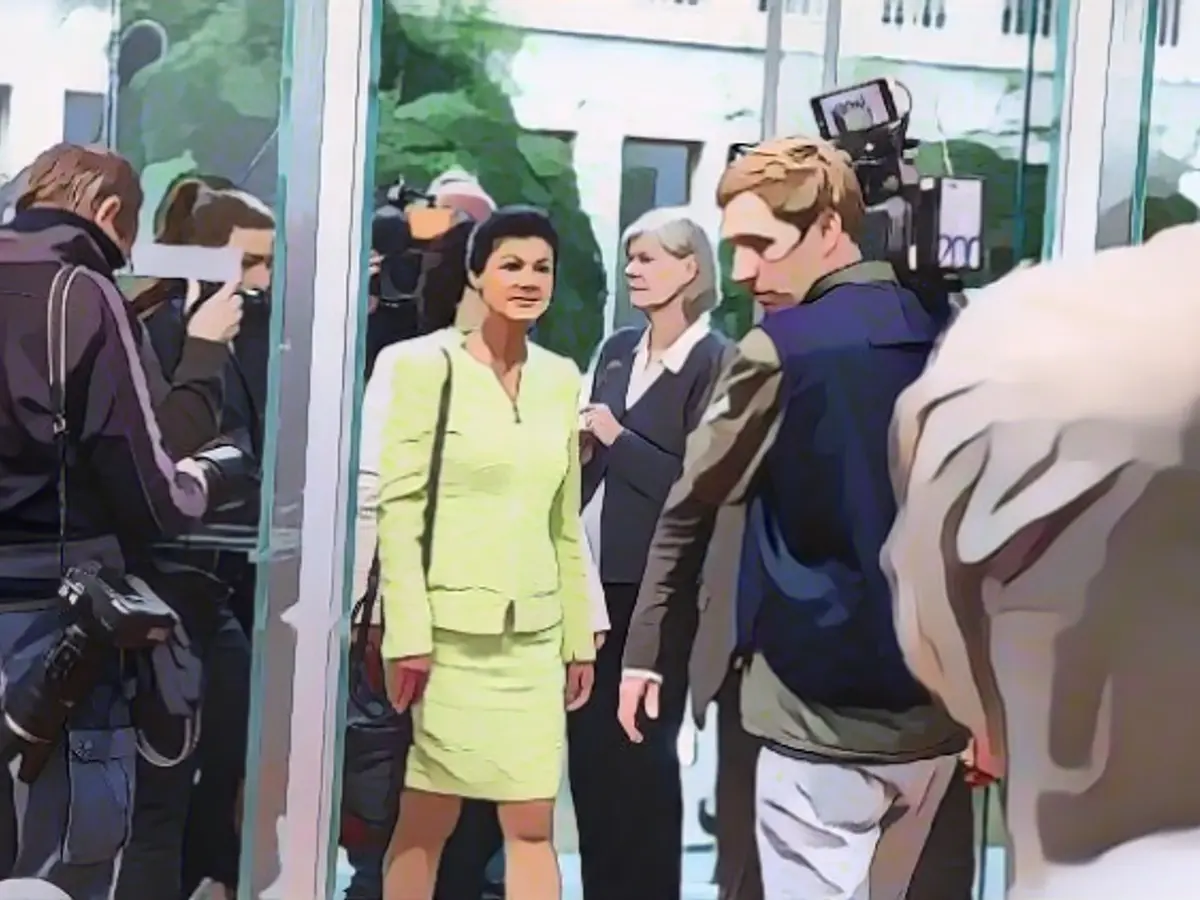Left weaker than ever since Wagenknecht's departure
Last week, the Left Party parliamentary group in the Bundestag disbanded, and the trend barometer is now showing the effects: only three percent of Germans would vote for the Left Party without Wagenknecht. The SPD improved slightly, but the popularity of the "Ampel" party remains weak.
When Sahra Wagenknecht and nine other members of the Bundestag leave the Left Party, the party manages to maintain its approval rating in the trend barometer at four percent. But the party's struggle for existence is not over yet: last Tuesday, the Left Party parliamentary group in the Bundestag decided to disband and this symbolic act obviously cost the party popularity. It fell to 3 percent support. However, the planned new start at the Left Party's federal party conference at the weekend is not reflected in the poll.
The governing SPD party has gained one percentage point in the current trend barometer, while the ratings of the other parties remain unchanged. The CDU/CSU is therefore still the strongest force ahead of the AfD, while the three "traffic light" parties - SPD, Greens and FDP - would still be a long way from a governing majority with a combined 34%.
If the Bundestag were elected this week, the parties could expect the following result: CDU/CSU 30% (Bundestag election in September 2021: 24.1%), AfD 21% (10.3%), SPD 15% (25.7%), Greens 14% (14.8%), FDP 5% (11.5%), Left 3% (4.9%), Free Voters 3% (2.4%). Nine percent of voters would opt for other parties. At 26%, the proportion of non-voters and undecided voters is higher than the proportion of non-voters in the last Bundestag election (23.4%).
The Middle East conflict remains in first place in the issue radar, although the war between Hamas terrorists and Israel is now only one of the most important issues for 62% of Germans. At the end of October, this figure was still 68%.
However, people are focusing more strongly on the state of their government: in the week following the resounding ruling by the Federal Constitutional Court, which overturned the climate transformation fund as a central source of funding for climate protection measures, 24% of the population consider the policies of the German government to be very relevant. Four weeks ago, this figure was still at 17% and has therefore changed the most.
The war in Ukraine is considered an important issue by 36% of Germans. This value thus remains unchanged in second place in the ranking. The economic situation is considered very important by 22% of respondents, while interest in the topic of immigration has fallen again slightly compared to the previous week to 16%. Climate/environment also lost interest, down one percentage point compared to the previous month, with the figure now standing at eight percent.
In terms of chancellor preferences, CDU leader Friedrich Merz lost support slightly, while the Green Minister for Economic Affairs Robert Habeck was able to maintain his increased approval rating following his much-noticed speech on the Middle East. In a constellation of incumbent Olaf Scholz from the SPD, Merz and Habeck, 19 percent would opt for Scholz, as in the previous week. Merz loses one point and comes in at 21%. Habeck achieves 18 percent.
If it were not Habeck but Foreign Minister Annalena Baerbock running for the Greens, Scholz would receive 19 percent - three points less than at the end of October. In this constellation, 21% would opt for Merz, two percentage points less than at the end of October. Baerbock would lose one percentage point on the comparative figure and would come in at 16%.
In the current trend barometer, the CDU/CSU is perceived as more competent than in previous weeks. The strongest opposition party was able to improve from 14% at the end of October to 16% on the question of who could best solve the problems in Germany. At eight percent, the SPD is on a par with the AfD and is therefore in a better position than the Greens, which only seven percent believe to be best able to solve the problems in Germany. The FDP is at a low of one percent when it comes to political competence this week. A constant 58% of Germans do not trust any party to be able to deal with the problems in Germany.
The data for the RTL/ntv trend barometer was collected by the market and opinion research institute Forsa on behalf of RTL Germany between November 14 and 20. Data basis: 2501 respondents. Statistical margin of error: plus/minus 2.5 percentage points.
Further information on Forsa here.Forsa surveys on behalf of RTL Germany.
Although the Left Party managed to maintain its approval rating at four percent in the trend barometer after Wagenknecht's departure, the disbanding of its parliamentary group in the Bundestag led to a decrease to 3 percent. Olaf Scholz, the SPD leader, gained one percentage point in the current trend barometer, while Friedrich Merz from the CDU/CSU improved slightly in terms of chancellor preferences, earning 21%. However, Robert Habeck, the Green Minister for Economic Affairs, maintained his increased approval rating following his speech on the Middle East and is currently at 18%.
Source: www.ntv.de








